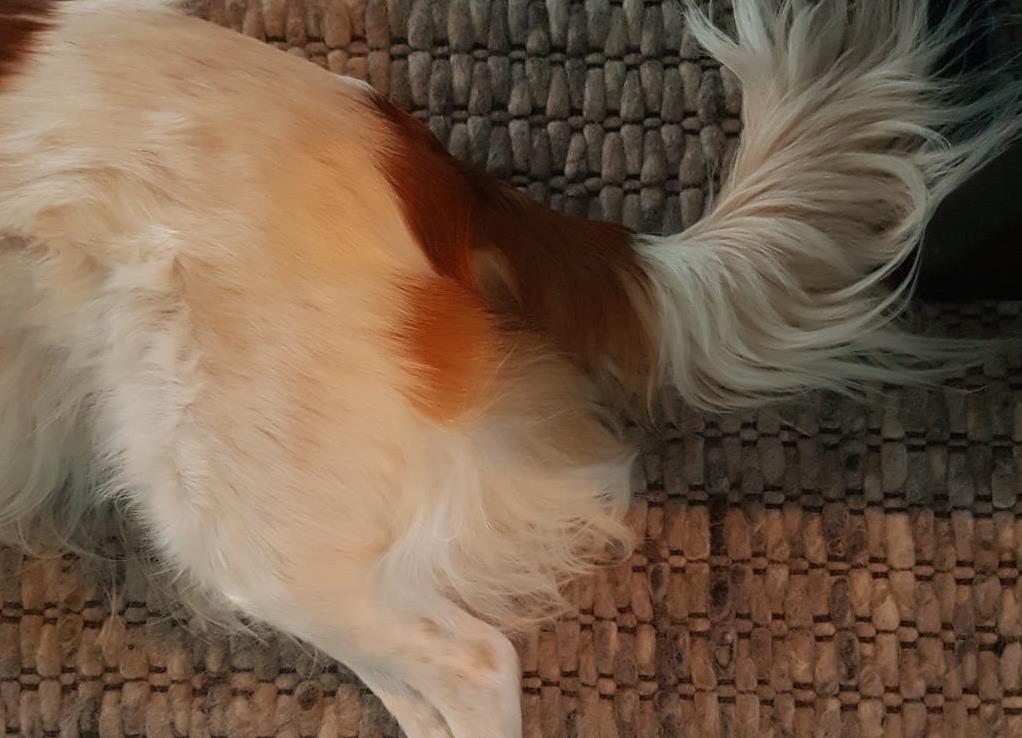WEST GERMANIC
Crusade in Oldebroek
Linguistics
| 06-12-2019
When I was 12, a classmate handed in a book report about "Kruistocht in spijkerbroek" ('Crusade in jeans') to our Dutch teacher. On the front of the report it said "Kruistocht in een spijkerbroek" (Crusade in a pair of jeans), which I thought was a funny mistake. Only later did I find out that it wasn't such a strange mistake at all, and that I was the one who hadn't quite understood it.
Spijkerbroek and Wapenfelt
The village I grew up in lies between the towns of Oldebroek and Hattemerbroek. Our secondary / high school was across the river IJssel, in Zwolle. Near that city lies 's-Heerenbroek and a little further on you will find Mastenbroek. So for me place names that ended with -broeki> were part of my daily environment. A pair of jeans, spijkerbroeki> in Dutch, in combination with a crusade seemed anything but logical to me, not knowing the content of Thea Beckmans renowned youth novel. And so I was under the assumption that the book was about a crusade in a place called Spijkerbroek. If Jan Terlouw got away with place names like Decibel, Wapenfelt (shouldn't that be Wapenveld, like the village where some of my classmates lived?), Smook ('Smoke') and Uikumene (growing up in the Noord-Veluwe, part of the Dutch Bible Belt, I already knew the word oecumene (ecumenism) - in the ninth grade...), then Thea Beckman could well call a place 'Spijkerbroek' for fun, right?

Leg covering
Where with the marshy land there is agreement between the West Germanic languages, with the leg covering there isn't. By calling that garment broek, Dutch and Frisian deviate from almost all other languages. I gave it a try on Google Translate and all that comes anywhere near broek is the Russian word bryuki (брюки). The Germans are the only ones who call such leg cover Hose, although in English the related hose 'stockings, tights, socks' occurs. According to the DWDS, hoos occurs in Dutch as a "little common" word. I have never heard of it, and in the Van Dale (the leading dictionary of the Dutch language) the meaning "loose cover for protection" (what I would call a hoes) comes closest to something pants-like. In almost all European languages to the south of Flanders and Germany, they use a variant of pantalon, which we also know in Dutch, but mainly as 'neat pants'. The English, Irish, Scottish and Welsh pants are derived from pantalon. If I can take Google Translate's word for it, in Japanese pants are called pantsu, which could well be related topantalon and pants.
Long-haired 'broek'
If the Dutch language deviates very much from the rest of the European languages by calling certain leg covering broek, you would think that the word has a very local origin. That doesn't seem to be the case. According to the EWN, the origin of the word is uncertain: "The only relative is a Celtic form *brāca, handed down in Latin brāca 'leg coverings' and perhaps in Old English braccas 'pants'." It could also be that the garment has gotten its name from the body part that covers it, since in different languages or varieties the back-side or thighs are named with a word somewhat similar to broek. The English breech is said to be related to this. In dogs, the word broek is also used in Dutch in the meaning 'thighs'. For kooikerhondjes, for example, one of the characteristics is the "fairly long-haired broek". Whatever the case, the garment seems to have nothing to do with marshy land. And I would never have mistaken the spijkerbroek for a place-name if Thea Beckman had chosen to use the word jeans instead in her book title. But that word only became more common in the Netherlands after the 20th century. Fortunately, because otherwise I would never have known all of the above.
Spijkerbroek and Wapenfelt
The village I grew up in lies between the towns of Oldebroek and Hattemerbroek. Our secondary / high school was across the river IJssel, in Zwolle. Near that city lies 's-Heerenbroek and a little further on you will find Mastenbroek. So for me place names that ended with -broeki> were part of my daily environment. A pair of jeans, spijkerbroeki> in Dutch, in combination with a crusade seemed anything but logical to me, not knowing the content of Thea Beckmans renowned youth novel. And so I was under the assumption that the book was about a crusade in a place called Spijkerbroek. If Jan Terlouw got away with place names like Decibel, Wapenfelt (shouldn't that be Wapenveld, like the village where some of my classmates lived?), Smook ('Smoke') and Uikumene (growing up in the Noord-Veluwe, part of the Dutch Bible Belt, I already knew the word oecumene (ecumenism) - in the ninth grade...), then Thea Beckman could well call a place 'Spijkerbroek' for fun, right?

A kooikerhondje has a fairly long-haired broek ('thighs')
Broek, brook, Bruch The Zwolle area is of course not the only part of the Netherlands where 'broek' appears in place-names. For example, in the province of North Holland you can find Broek op Langedijk and in Friesland Broeksterwâld, locally often referred to as ‘de Broek’. Also Breukelen and Brooklyn, which name is derived from it, find their origin in the word broek. In all those cases, a broek means a 'low-lying marshy land'. Naturally, such areas also existed in Germany, where they use the word Bruch for it. The DWDS defines that as "mit Bäumen und Sträuchern bewachsenes Sumpfland" ('wetlands covered with trees and shrubs'). I find that 'Sumpf' really spot-on: say the word and you'll hear the soggy sound of the swampy mud as you try to walk through it. It could be an onomatopoeia. Both broek and Bruch probably come from the Proto-Germanic *broka-, of which the English derived brook 'small natural water stream'. According to Etymonline, in Sussex and Kent the word also means “water-meadow” ('waterweiland' in Dutch) and in the plural “low, marshy ground”. Googling on 'waterweiland' I find that there will be a neighborhood in Grootebroek named Waterweide. I love it when words come together.Leg covering
Where with the marshy land there is agreement between the West Germanic languages, with the leg covering there isn't. By calling that garment broek, Dutch and Frisian deviate from almost all other languages. I gave it a try on Google Translate and all that comes anywhere near broek is the Russian word bryuki (брюки). The Germans are the only ones who call such leg cover Hose, although in English the related hose 'stockings, tights, socks' occurs. According to the DWDS, hoos occurs in Dutch as a "little common" word. I have never heard of it, and in the Van Dale (the leading dictionary of the Dutch language) the meaning "loose cover for protection" (what I would call a hoes) comes closest to something pants-like. In almost all European languages to the south of Flanders and Germany, they use a variant of pantalon, which we also know in Dutch, but mainly as 'neat pants'. The English, Irish, Scottish and Welsh pants are derived from pantalon. If I can take Google Translate's word for it, in Japanese pants are called pantsu, which could well be related topantalon and pants.
Long-haired 'broek'
If the Dutch language deviates very much from the rest of the European languages by calling certain leg covering broek, you would think that the word has a very local origin. That doesn't seem to be the case. According to the EWN, the origin of the word is uncertain: "The only relative is a Celtic form *brāca, handed down in Latin brāca 'leg coverings' and perhaps in Old English braccas 'pants'." It could also be that the garment has gotten its name from the body part that covers it, since in different languages or varieties the back-side or thighs are named with a word somewhat similar to broek. The English breech is said to be related to this. In dogs, the word broek is also used in Dutch in the meaning 'thighs'. For kooikerhondjes, for example, one of the characteristics is the "fairly long-haired broek". Whatever the case, the garment seems to have nothing to do with marshy land. And I would never have mistaken the spijkerbroek for a place-name if Thea Beckman had chosen to use the word jeans instead in her book title. But that word only became more common in the Netherlands after the 20th century. Fortunately, because otherwise I would never have known all of the above.
WEST GERMANIC
In the West Germanic section every other week I discuss a word that strikes me. I look at the meanings and forms of the word, and especially at where the word originates from. With that I compare the four West Germanic languages Dutch, English, Frisian and German, with the occasional inevitable trip across the fictional West Germanic border.
In the next episode: Lützel, luttel, lutje, lyts and little
